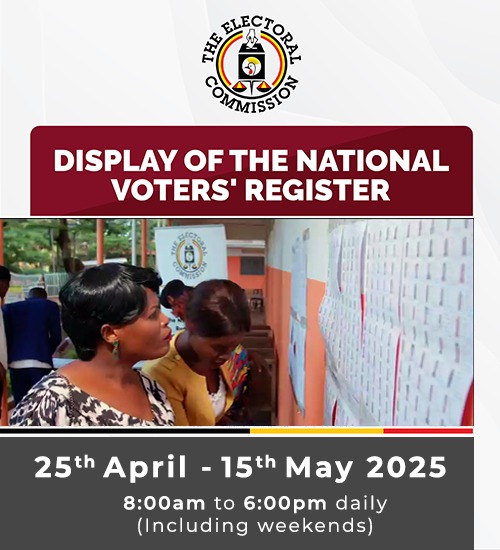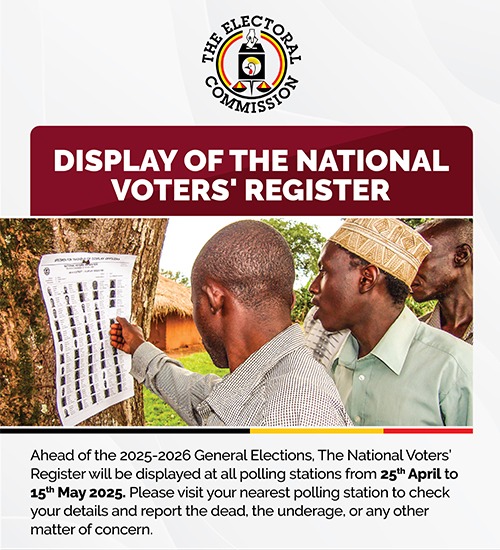Kampala – Uganda: A book published in 2015 by a Norwegian researcher could have set the stage for the understanding of the current stand-off between Uganda and the World Bank and how it will be resolved.
Titled: DEVELOPMENTALITY: An Ethnography of the World Bank-Uganda Partnership, the book was authored by Jon Harald Sande Lie, a Senior Research Fellow at the Norwegian Institute of International Affairs (NUPI).
Jon is also the co-editor of the Forum for Development Studies and has published in the journals Social Analysis, Millennium, and African Security. He also writes on Security and Development.

The Stand-off
Uganda’s President Yoweri Museveni last week fired at the World Bank saying that the conveyed nation can progress without financial assistance from the institution, which recently announced a freezing of funding in response to Uganda’s anti-homosexuality law.
Museveni contended that the Bank is employing its financial support for projects as a means to compel African countries to disregard their cultural values, a stance he firmly opposes.
Addressing the issue, Museveni emphasized, “Uganda will develop with or without loans.” He criticized the World Bank and other actors for attempting to manipulate Uganda’s faith, culture, principles, and sovereignty using monetary leverage, asserting that such actions underestimate the resilience of Africans.
The World Bank suspended future funding for projects in Uganda due to human rights concerns arising from the enactment of the anti-homosexuality law. The Bank’s statement outlined that the law contradicts its core values of inclusivity and non-discrimination, both of which are integral to its global poverty eradication goals.
Museveni, who signed the law in May, has resisted Western pressure even during the drafting stage. He criticized the use of financial incentives to coerce societies into abandoning their traditional norms. While Museveni acknowledged ongoing discussions between Kampala and the World Bank, he underscored that external pressure isn’t needed to address societal challenges.
Amidst these developments, Museveni’s defiance against conditional funding brings to light broader questions about the dynamics between international organizations, financial assistance, cultural values, and national autonomy, and this book did point to this, exactly eight years ago.

What the book revealed
The book draws on immersive ethnographic research within the World Bank and the Ugandan Ministry of Finance Planning and Economic Development to critically examine the transformative claims of the new aid architecture.
While the architecture aims to restructure aid relations as partnerships, the book reveals the persistence of indirect mechanisms through which donors retain control.
The concept of “developmentality” emerges to elucidate the Bank’s subtle ability to guide behavior, often masked by the rhetoric of partnership, ownership, and participation. These concepts, although seemingly empowering, serve as tools for the Bank to shape the alignment of aid recipients with its policies and practices.
The suspension of loans to Uganda by the World Bank due to the passing of the anti-homosexuality bill into law has raised significant concerns and implications. But in light of this development, the suspension of loans underscores the power dynamics inherent in development aid.
While aid is often promoted as a partnership, this incident reveals the persistent unevenness between donor and recipient countries. The book’s analysis of the World Bank’s official discourse highlights how official narratives are shaped through contestation, and certain ideas prevail over others. This dynamic, therefore, echoes the challenges faced by Uganda as it navigates the consequences of its decisions on a global stage.
For instance, a number of government officials, particularly the Deputy Speaker of Parliament, Thomas Tayebwa, have echoed their president in haranguing the bank while political and civil society activists have questioned the indifference of the institution to gross human rights violations, only choosing to flag the LGBTQ law. But the bank’s ideological orientation is lost on them.
The passing of the anti-homosexuality bill and its impact on Uganda’s relationship with international organizations like the World Bank raises questions about the politics of harmonization and alignment. Thus, the book’s examination of such concepts as ‘developmentality’ offers insights into how donors and governments navigate their policies and priorities. The suspension of loans can be seen as a manifestation of the misalignment between Uganda’s legislative choices and international norms and values.
Furthermore, the book’s exploration of power relations and the state’s role in development is pertinent. The new aid architecture aims for a more inclusive and comprehensive approach, emphasizing recipient participation. However, the disjuncture between formal order and practice persists, as observed in Uganda’s recent legislative actions. The suspension of loans serves as a reminder of the complexities of power dynamics and the negotiation of development priorities.
For example, the tension between sovereignty and international norms is highlighted by the passing of the anti-homosexuality bill and the subsequent suspension of loans. The influence that international organizations like the World Bank wield in shaping countries’ legislative agendas is evident. Uganda’s decision to enact the anti-homosexuality law and the resulting consequences reflect the intricate interplay between national priorities, global norms, and the actions of international entities.
The book’s analysis of contestation and resistance in shaping official discourse underscores the notion that development narratives are constructed through negotiation and power struggles. In the case of Uganda, the suspension of loans could be seen as an act of resistance by the international community against a policy that is deemed discriminatory and contrary to human rights principles.
Thus, the current stand-off between Uganda and the World Bank a multidimensional issue that intersects with various themes explored in Jon Harald Sande Lie’s book “Developmentality.” The book’s analysis of power dynamics, official discourse, and the complexities of international partnerships offers valuable insights into understanding the implications of this situation and how it might be resolved. As Uganda grapples with the aftermath of its legislative decision, the book’s perspectives shed light on the broader implications for development, human rights, and global governance- values that will most likely force President Museveni and his troops to cave in.
NOTE: The Book can be accessed via this link: https://www.berghahnbooks.com/title/SandeLieDevelopmentality
About The Author
Arinaitwe Rugyendo
Rugyendo is the Founder and Editor-in-Chief of ResearchFinds News. He’s an accomplished journalist with a rich background in the media industry in Uganda. With over two decades of experience, Rugyendo has held various roles including cab reporter, Bureau Chief, Managing Editor, and Digital Media Editor at renowned publications such as Daily Monitor and Red Pepper. Throughout his career, he has demonstrated a commitment to delivering high-quality journalism and staying at the forefront of media trends. In addition to his journalistic pursuits, Rugyendo is currently pursuing a Ph.D. in Journalism and Communication at Makerere University. He has been recognized for his outstanding leadership and commitment to social change as a Desmond Tutu Fellow and Crans Montana New Leader. Rugyendo also serves as the Chairman of Young Engineers Uganda and Uganda Premier League, showcasing his dedication to promoting excellence and growth in various fields. With a passion for driving innovation and pushing boundaries in media, Rugyendo continues to make significant contributions to the industry. His vast experience, academic pursuits, and leadership roles make him a respected figure in the Ugandan media landscape.
















